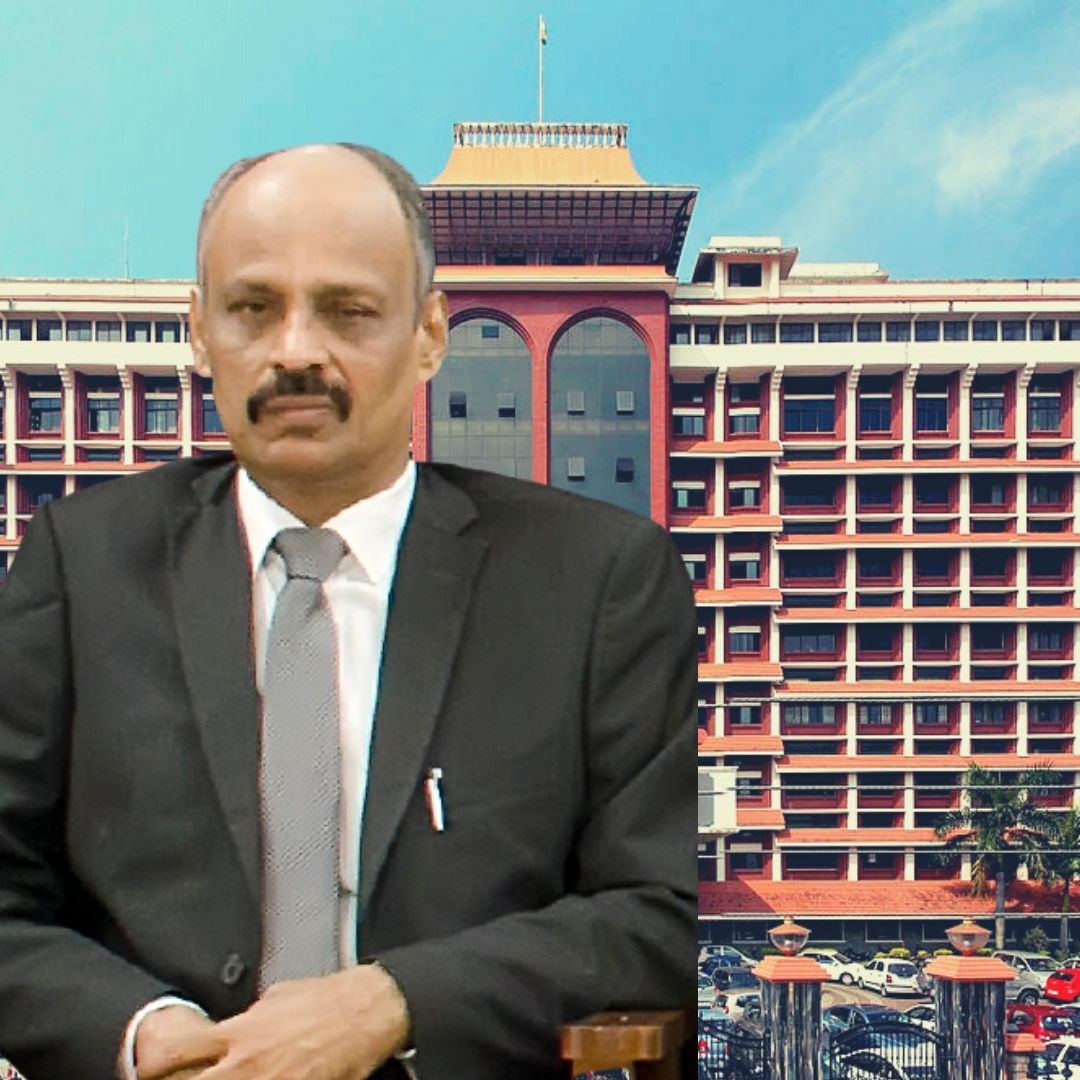
Image Credits: Wikipedia
"Being In Love Does Not Imply Sexual Consent": How Kerala HC's Ruling Is A Step In Right Direction
Writer: Akanksha Saxena
I am a budding journalist who loves to write stories that have the ability to connect with people.
Kerala, 23 Nov 2021 11:42 AM GMT
Editor : Ankita Singh |
A literature lover who likes delving deeper into a wide range of societal issues and expresses her opinions about the same. Keeps looking for best-read recommendations while enjoying her coffee and tea.
Creatives : Akanksha Saxena
I am a budding journalist who loves to write stories that have the ability to connect with people.
The judgment passed by Justice Narayana Pisharadi comes a few days after Supreme Court's observations, quashing Bombay High Court's controversial ruling about skin to skin being 'necessary' in sexual assault.
The Kerala High Court is in the news again for another progressive ruling. In a recent rape case, the court stated being in love does not imply sexual consent. An order passed by Justice R Narayana Pisharadi ruled that there is a difference between consent and submission.
"Exercise of intelligence based on the knowledge of the significance and the moral effect of the act required for consent," Hindustan Times quoted.
Further, Pisharadi added that helplessness attributed to compulsion could not be taken as consent. While consent may involve the eventual submission, the vice-versa is not acceptable as it is forceful.
About The Case
The case involves a 26-year-old man named Syam Sivan. He had approached the Kerala High Court after a trial court convicted him of rape under Indian Penal Code (IPC) Section 376, which deals with the same. In 2013, he took his girlfriend to Karnataka on the pretext of marriage. There, he had sexual intercourse without her consent. He repeated this act in Goa, and he sold all her ornaments. He threatened to commit suicide if she did not come with him.
According to LiveLaw, the girl's father filed a missing person's report. When she returned, she stated that she was sexually assaulted. A First Information Report (FIR) and chargesheet were filed against the accused. Based on this, the trial court proved him guilty, after which the man appealed to the state High Court. "There is a gulf of difference between consent and submission. Helpless in the face of compulsion cannot be considered to be consent as understood in law.
The prosecutor tried to prove that the accused was a minor. However, sufficient documents were not presented to the court, who eventually refuted claims about the same.
Kerala HC Setting Examples
This is not the first time Justice Pisharadi has passed a progressive judgment. In October, a ruling stated that a victim's sexual history could not absolve a person from rape and sexual assault. "Even in a case where it is shown that the victim is a girl of easy virtue or a girl habituated to sexual intercourse, it may not be a ground to absolve the accused from the charge of rape," Deccan Chronicle quoted the ruling.
This particular case involved a father perpetuating sexual assault on his minor daughter, making her pregnant. The DNA results proved that he was the infant's biological father. He appealed to the court, trying to prove his innocence on the grounds of his daughter's 'romantic past.' The court ruled, "The father was duty-bound to provide the victim protection and support. But, he perpetrated the sexual assault on her. One cannot even imagine the trauma she would have suffered. The indelible imprint which the incestuous act has left in her mind cannot be ignored."
In August 2021, the Kerala High Court passed another landmark judgment, recognising marital rape as a ground for divorce. With no provision laid down in the country's legal framework. "Merely for the reason that the law does not recognise marital rape under penal law, it does not inhibit the court from recognising the same as a form of cruelty to grant a divorce. We, therefore, are of the view that marital rape is a good ground to claim divorce," The News Minute reported.
Long Road Ahead
The recent judgment comes in a few days after the Supreme Court overruled Bombay High Court's controversial ruling regarding sexual assault. In a sexual assault case, the latter's Nagpur bench acquitted a man as it involved skin to skin contact. Therefore, he was proven not guilty since he 'groped' the girl through her clothes.
The rather disturbing precedent was challenged in the apex court by the Attorney General, KK Venugopal, and the National Commission for Women. "We have held that when the legislature has expressed clear intention, the courts cannot create ambiguity in the provision. It is right that the court cannot be overzealous in creating ambiguity," NDTV quoted the Supreme Court's judgment. Venugopal slammed the High Court's interpretation, as it could be a 'devastating' precedent for future cases.
The recent rulings are steps in the right direction. The Indian society's inherent patriarchy has contentious justifications for certain activities. A woman's romantic history is scrutinised when she is sexually assaulted. People assume that she will be 'alright' with such advances because of her past. Women are told to be cautious. When they go out in the world, however, their near and dear ones are responsible for such heinous crimes. As per a report in Reuters, inferences from a 2014-2015 report by the National Crime Records Bureau (NCRB) proved that almost 90% of rapes are perpetrated by people close to the victim, such as husbands, relatives, etc.
With these judgments, the judiciary is setting the right tone. However, the legal framework plays a role in the ambiguity as well. Some of the sections are vague that could be misused in such sensitive cases. Sometimes, it is necessary to go beyond the law. Consent is never circumstantial. Being in a loving relationship with an individual does not amount to the coercion of any kind.
The media content we consume plays a detrimental role as well. Several movies show a misconstrued notion about relationships that involves force and no consent whatsoever. Living in an impressionable society, this is a very dangerous precedent as it can shape young minds who feel that this is the right thing to do.
There is a long way to go. Gender equality and sensitisation are essential. All of these are to be done at the grassroots. The judiciary's job is to uphold the law and also provide a haven to a citizen. Legality and moral compass have to co-exist together to provide holistic justice. In light of this, there should be no complacency.
More work needs to be done to ensure everyone around us live a dignified life. In our country, a woman has to fight hard for her rights. It is time to improve our mindset and accept that women have the right to exercise their agency. Therefore, the judgments play an essential role in shaping the country's perspective in this regard. However, the onus is on us to reject the archaic thought process and embrace equality in all fields to live in a better world.
Also Read: 'Skin-To-Skin' Touch Not Necessary For Sexual Assault: SC Quashes Bombay HC's Ruling
 All section
All section














